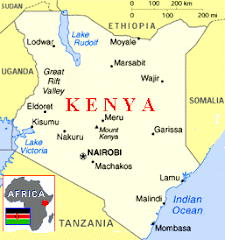 Political wars around the history of genocide are most evident in controversies over the Holocaust (see "The Holocaust, genocide studies, and politics", 18 August 2010). But they are also sharpening around Rwanda, where in 1994 the “Hutu Power” regime killed hundreds of thousands of Tutsis as well as moderate Hutus (see Gérard Prunier, The Rwanda Crisis, 1954-94: History of a Genocide [C Hurst, 2nd edition, 1998]).
Political wars around the history of genocide are most evident in controversies over the Holocaust (see "The Holocaust, genocide studies, and politics", 18 August 2010). But they are also sharpening around Rwanda, where in 1994 the “Hutu Power” regime killed hundreds of thousands of Tutsis as well as moderate Hutus (see Gérard Prunier, The Rwanda Crisis, 1954-94: History of a Genocide [C Hurst, 2nd edition, 1998]).
The political context of this development is that the Rwandan Patriotic Front (RPF) government headed by Paul Kagame - which ended the genocide when it seized power - is both determined to use the west's guilt at failing to stop the 1994 genocide to entrench its own impunity, and trade on the victims of the Rwanda genocide in order to deflect criticism of its domestic authoritarianism and external aggression.
This strategy is diminishing in effect. A real momentum is growing behind the recognition of the RPF's own responsibility for massacres of civilians, mainly Hutus, leading to accusations that it too has committed genocide. Until now most attention has focused on massacres inside Rwanda, during the RPF's invasion in 1994 and subsequent consolidation of power, most notoriously at Kibeho in 1995.
These events led some Hutu propagandists to propound the theory of the “double genocide”. This is a simplistic and distorting idea because RPF massacres were localised, with neither the national scope nor the consistent targeting of the huge Hutu Power murder-campaign. Nevertheless, there is no doubt that the RPF committed genocidal massacres of Hutu civilians.
The spotlight now, however, is on the aftermath of the 1994 genocide, when the RPF pursued Hutu génocidaires into what was then Zaïre (now the Democratic Republic of Congo), initiating the devastating wars which engulfed that country until 2003 and continue in some regions to this day. In these wars, a changing (and to the uninitiated, bewildering) array of states and Congolese armed groups have both fought each other and committed atrocities (including systematic rape) against civilians.
A new report
Gérard Prunier, in his monumental study of the Congo wars - From Genocide to Continental War: The 'Congolese' Conflict and the Crisis of Contemporary Africa (C Hurst, 2009) - explains that Rwanda's RPF regime remained the most consistent and determined external participant throughout these conflicts, and that its responsibility for massacres has long been known (see Gérard Prunier, "The eastern DR Congo: dynamics of conflict", 17 November 2008).
For their part western governments, especially the United States and Britain’s, have consistently deferred to Rwanda's “victim” status, in some cases defending it against serious charges of having perpetrated crimes for which there is real evidence.
But a detailed report of the United Nations High Commissioner for Human Rights - leaked to Le Monde - maps “the most serious violations of human rights and international humanitarian law” committed within the DR Congo in 1993-2003: namely, charges that civilians were systematically attacked on a large scale. A summary on paragraph 512 reads:
“These attacks resulted in a very large number of victims, probably tens of thousands of members of the Hutu ethnic group, all nationalities combined. In the vast majority of cases reported, it was not a question of people killed unintentionally in the course of combat, but people targeted primarily by [Rwandan and allied] forces and executed in their hundreds, often with edged weapons. The majority of the victims were children, women, elderly people and the sick, who posed no threat to the attacking forces. Numerous serious attacks on the physical or psychological integrity of members of the group were also committed, with a very high number of Hutus shot, raped, burnt or beaten. Very large numbers of victims were forced to flee and travel long distances to escape their pursuers, who were trying to kill them. The hunt lasted for months, resulting in the deaths of an unknown number of people subjected to cruel, inhuman and degrading living conditions, without access to food or medication. On several occasions, the humanitarian aid intended for them was deliberately blocked, in particular in Orientale Province, depriving them of assistance essential to their survival.”
The report therefore carefully argues (paragraphs 514-18) that the attacks on Hutus could have amounted to genocide.
This is an explosive conclusion for the Rwandan government (which has predictably reacted by threatening regional peacemaking arrangements). The United Nations and western governments will also find it embarrassing and inconvenient - to the extent that there is doubt as to whether the report will ever be published officially.
A great denial
All this is also welcome fuel for a determined group of Rwanda genocide-deniers. A new book by Edward S Herman and David Peterson focusing on the use of the term “genocide” in the media and academia - The Politics of Genocide (Monthly Review Press, 2010) - argues that the western establishment has “swallowed a propaganda line on Rwanda that turned perpetrator and victim upside-down” (p.51); the RPF not only killed Hutus, but were the “prime génocidaires” (p.54); there was “large-scale killing and ethnic cleansing of Hutus by the RPF long before the April-July 1994 period (p.53); this contributed to a result in which “the majority of victims were likely Hutu and not Tutsi” (quoted with approval, p.58).
Herman and Peterson state that “a number of observers as well as participants in the events of 1994 claim that the great majority of deaths were Hutu, with some estimates as high as two million” (p.58). But a check of the reference for this shocking statement finds no more than a letter from a former RPF military officer and personal communications from a former defence council before the International Criminal Tribunal for Rwanda (n.127, p.132) - both participants rather than “observers”. That is enough for these authors to dismiss the idea of “800,000 or more largely Tutsi deaths” as RPF and western propaganda (see Adam Jones, "On Genocide Deniers - Challenging Herman and Peterson", AllAfrica.com. 16 July 2010).
This book deserves attention for the fact that it opens with a lengthy foreword by Herman’s long-term collaborator, Noam Chomsky. Chomsky remains for many an exemplary champion of human rights; a quote from him even emblazons the respectable academic website on which the leaked UN report has been published.
Many others, however, reached a very different view after examining his comments on the Khmer Rouge record in Cambodia, his indulgence of Holocaust-denying writers, and his encouragement of Bosnian genocide-denial. But even in this gruesome context (to use one of Chomsky’s favourite words) his endorsement of The Politics of Genocide - with its denial of genocide in Rwanda as well as Bosnia - goes further.
A dead zone
This book and Noam Chomsky’s foreword inadvertently show just how multi-directional the politics of genocide have become. It is true that official western propagandists minimise “our” crimes and represent those of “our” enemies in over-simplified ways, and that such legerdemain merits exposure. But it also clear that anti-western propagandists - Herman, Peterson and Chomsky among them - are guilty of the same evasions and distortions from the “other” side.
They argue that in official western narratives, “our victims are unworthy of our attention and indignation, and never suffer ‘genocide’ at our hands” (p.104, italics in original). Yet in anti-western, Chomskyan narratives, an identical process occurs: the west's enemies, whether Serbian nationalist or Rwandan “Hutu Power”, have never committed “genocide”, and their crimes are always of less significance than those of western-supported forces.
The journalist John Pilger endorses The Politics of Genocide on its cover by saying that Herman and Peterson “defend the right of all of us to a truthful historical memory”. This important right can never be exercised by treating the men and boys of Srebrenica, the massacred and expelled Kosovo Albanians, and the slaughtered Rwandan Tutsis as “unworthy victims”.
For scholars of genocide studies, this book is rich source-material. It is not a serious contribution to analysis in the interest of “truthful historical memory”.
By: Martin Shaw is professorial fellow in international relations and human rights at Roehampton University, London, and an honorary research professor of international relations at the University of Sussex. His website is here This review has been reproduced from openDemocracy.net under a Creative Commons licence.




No comments:
Post a Comment